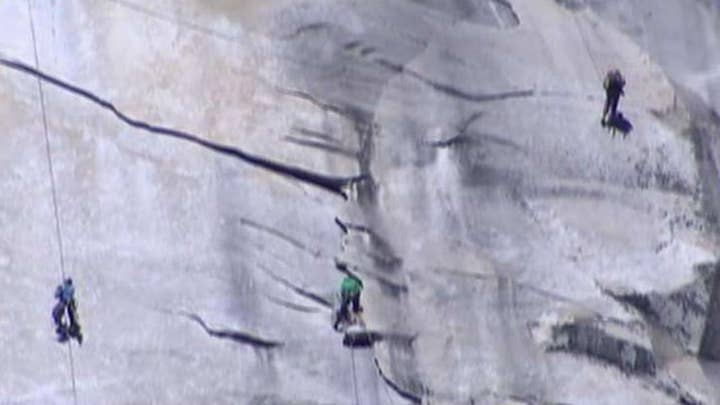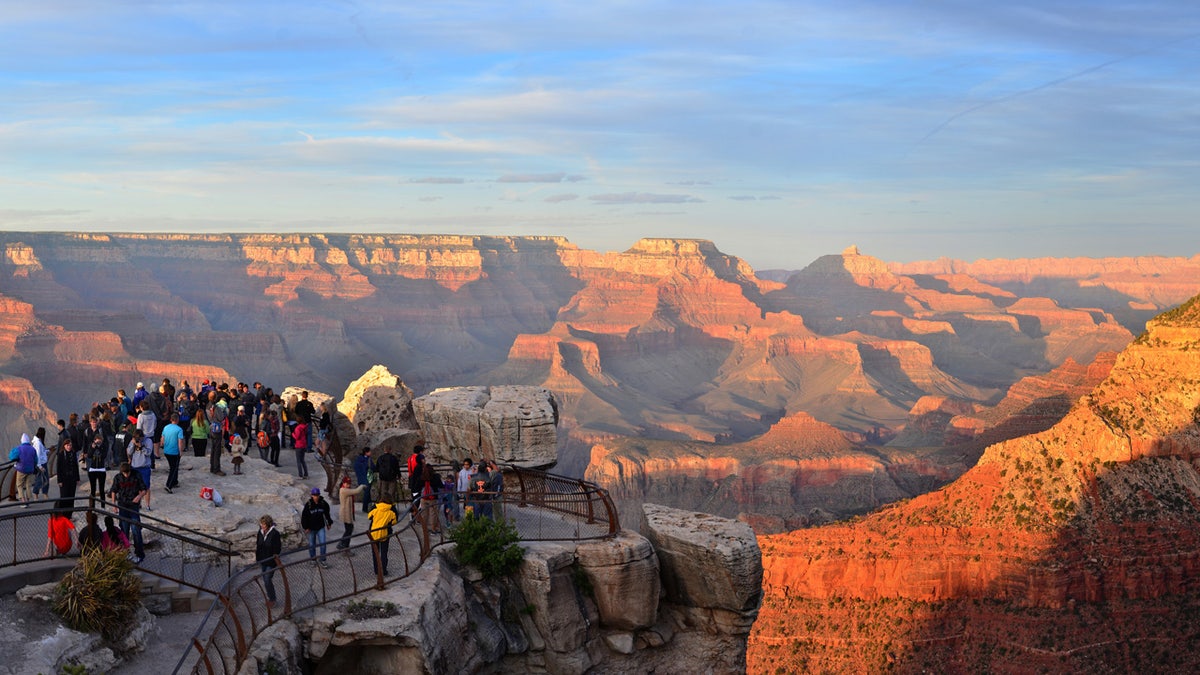
A short walk or free shuttle bus ride from the main parking areas at Grand Canyon Visitor Center, Mather Point provides a spectacular view of Grand Canyon. (National Park Service)
Search and rescue operations in America's national parks cost taxpayers more than $3 million last year, with the Grand Canyon in Arizona and Yosemite in California leading the way for most reported incidents, according to National Park Service statistics.
The Grand Canyon's 290 search and rescue operations (SARs) were a full 10 percent of those conducted nationwide, while Yosemite's 233 operations were 8 percent of the national total, the statistics showed.
Nationwide, such operations involved more than 71,000 work hours for park service employees, and an additional 12,300 work hours for non-employees, such as volunteers, military personnel or other external resources, the park service figures revealed.
Across the national park system 159 fatalities were reported last year, accounting for 5.5 percent of total SAR incidents. Earlier this month, two climbers fell from Yosemite's El Capitan, a 3,000-foot vertical rock face, Fox News reported, citing information from park officials.
In Utah, the 324 SARs in the state's national parks last year represented a rise of nearly 70 percent since 2014, with men in their 20s being the most likely people to require assistance, the Salt Lake Tribune reported.
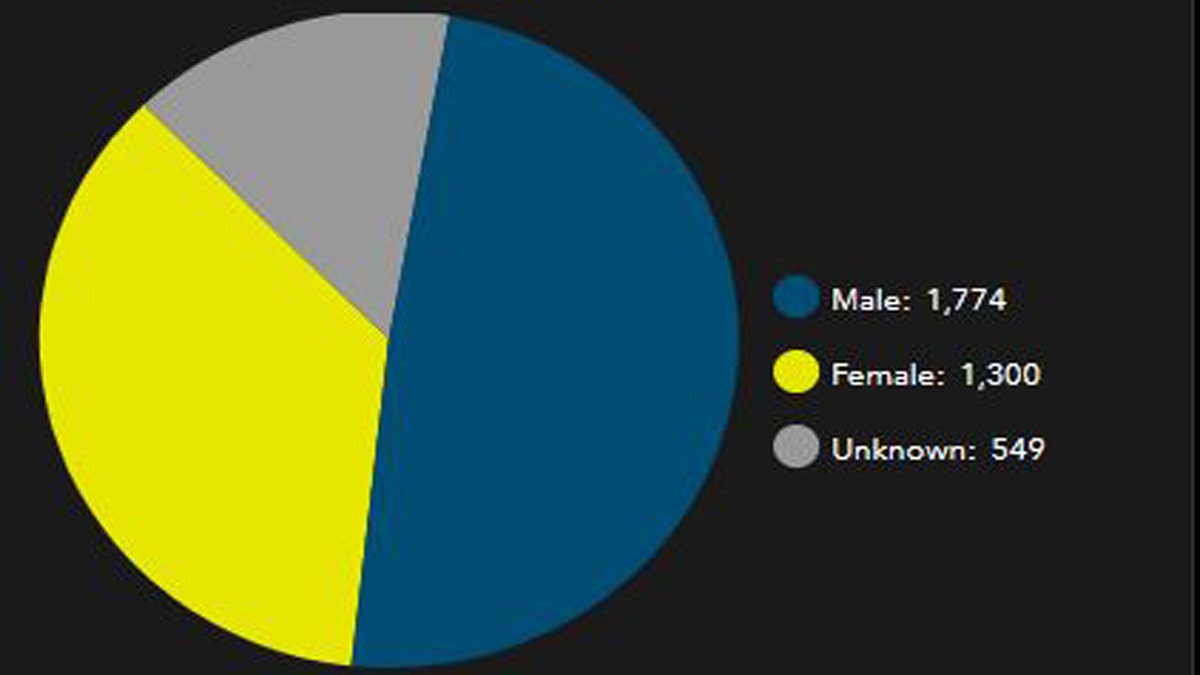
GENDER statistics nationwide of 2890 total reported search and rescue (SAR) operations in 2017. (National Park Service)
Zion and Bryce Canyon, “the granddaddies” of Utah’s national parks, were where most visitors run into trouble. Rangers retrieved 114 people in Zion last year, which marked a 42 percent leap from three years ago, the report said.
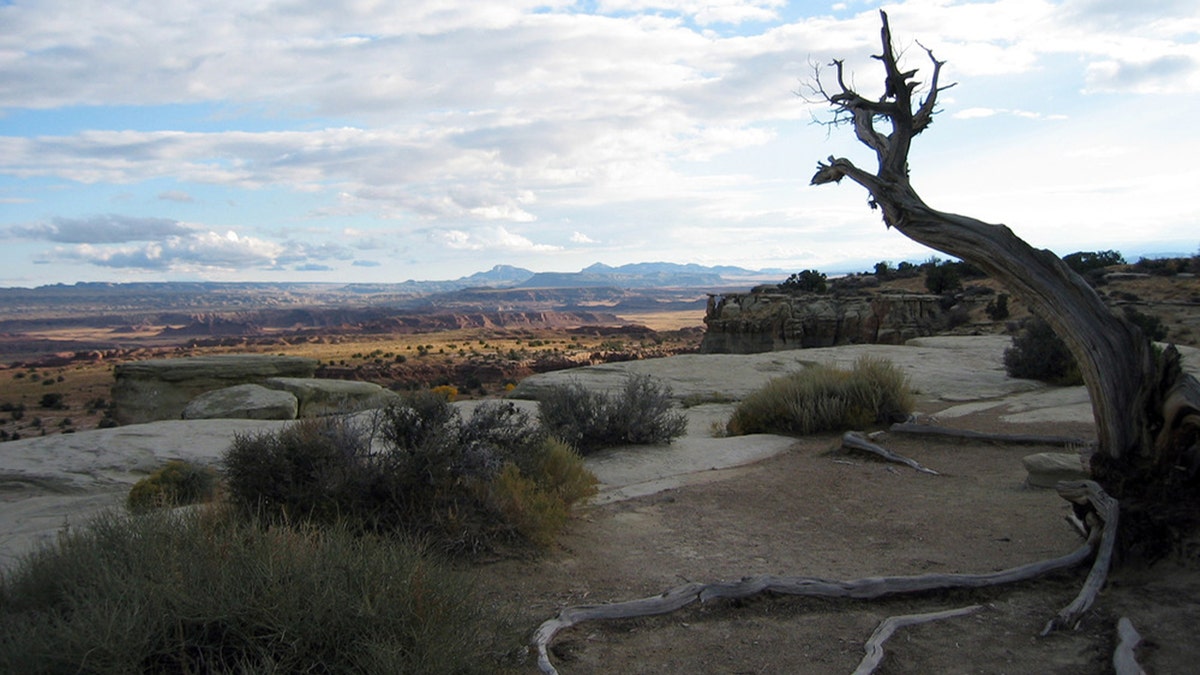
The San Rafael Swell, a huge craggy geologic feature, is located in south-central Utah approximately 30 miles west of Green River. (National Park Service)
Smaller Bryce Canyon saw a sharp rise from 19 SARs in 2014 to 86 such operations last year, the newspaper reported.
For those 86 operations, staffers and volunteers reportedly spent nearly 860 hours searching for or rescuing distressed visitors, costing the park service about $32,000.
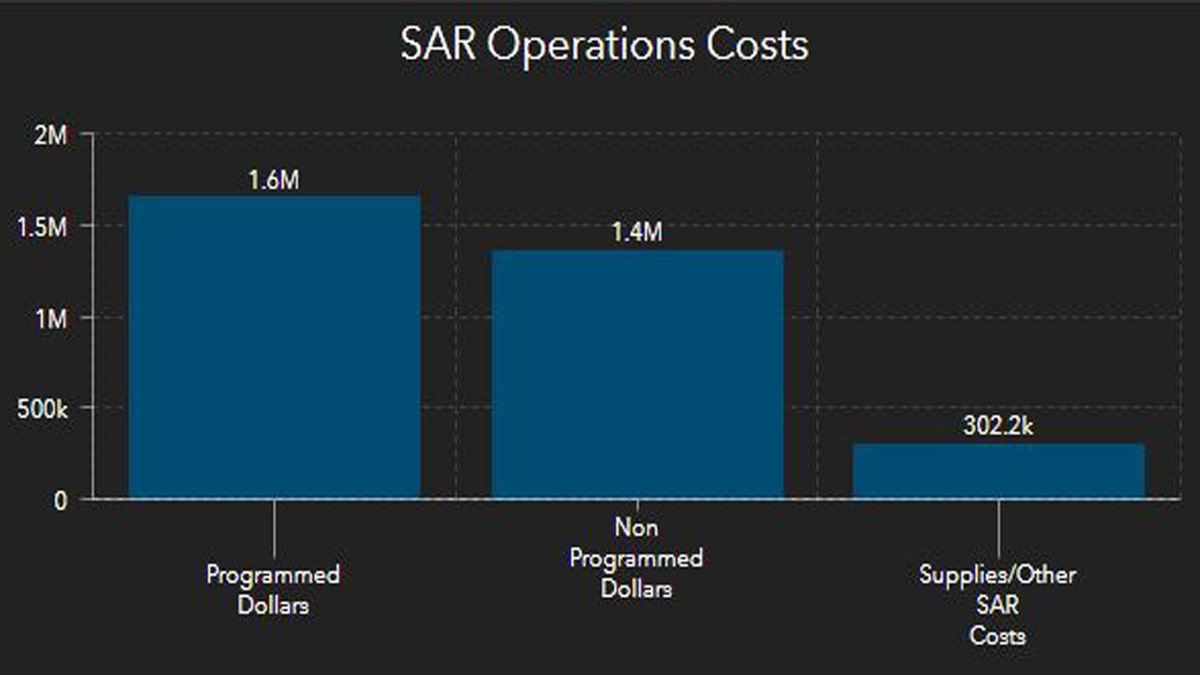
COSTS statistics nationwide for 2890 total reported search and rescue (SAR) operations in 2017. (National Park Service)
The Beehive State's national park units had 12 fatalities in 2017, which was up from eight in 2014, the Tribune reported.
Nationally, a total of 2,890 SARs were reported last year, with 49 percent (1,174) involving men, and 19.3 percent (656) involving people in their 20s, the NPS reported.
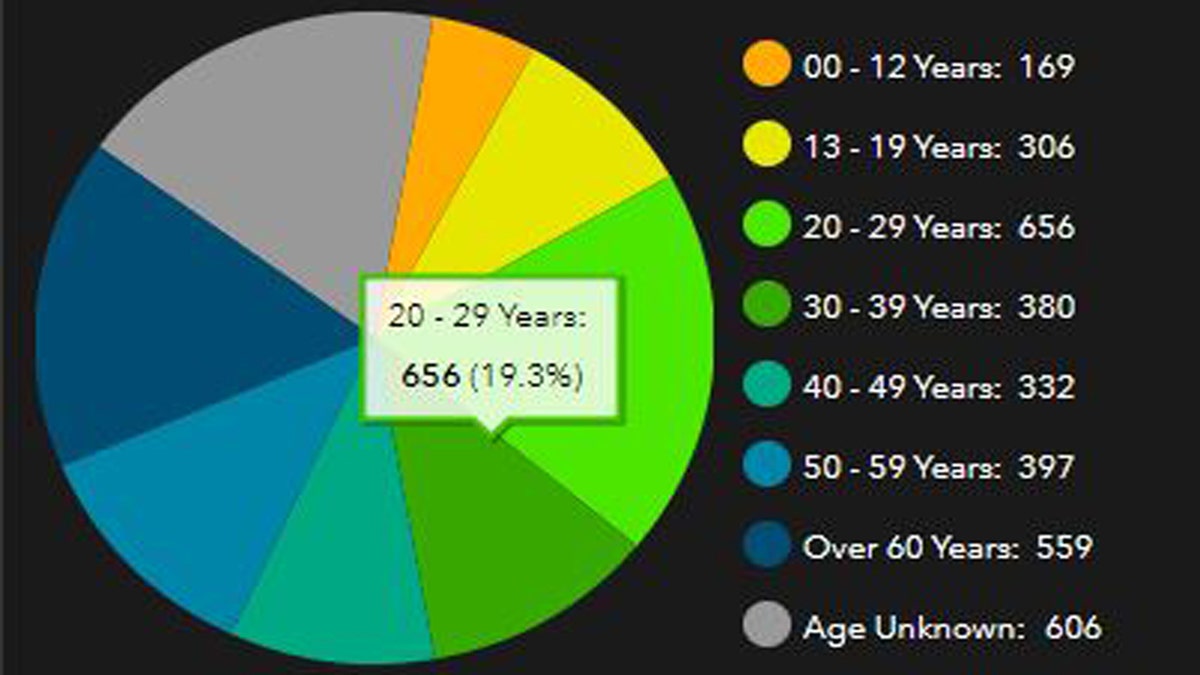
AGE statistics nationwide of 2890 total reported search and rescue (SAR) operations in 2017. (National Park Service)
